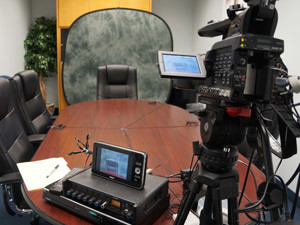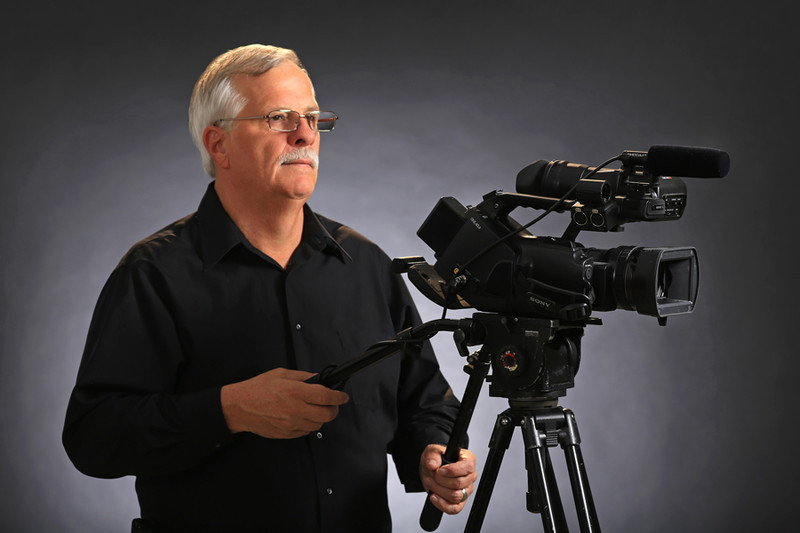The Function of Lawful Videography in Depositions and Trials
Lawful videography has emerged as a crucial tool in both depositions and trials, supplying a multifaceted method to documenting witness statements. As legal specialists significantly identify its worth, it prompts a deeper exam of just how these aesthetic documents can influence juror understandings and trial results.
Relevance of Legal Videography
Lawful videography plays a critical role in the documentation and presentation of depositions and trials. This customized area combines technological skills with lawful understanding to create a reliable document of procedures that can significantly affect instance outcomes. The appearance of legal videography boosts the understanding of witness testament, permitting jurors and judges to observe not just the spoken words yet likewise the attitude, feelings, and body language of the witnesses.

The relevance of lawful videography prolongs past the court room; it additionally plays a vital role in protecting evidence for future reference, whether for allures or additional legal activity. Its assimilation right into the lawful process is vital for making certain a reasonable and accurate representation of the facts, inevitably adding to the quest of justice.

Process of Legal Videography
While capturing the subtleties of depositions and tests, the procedure of lawful videography includes a number of vital actions that make sure top quality, exact recordings. An expert legal videographer prepares by evaluating the situation materials and understanding the specific requirements of the deposition or test. This prep work includes acquainting themselves with the individuals and the context, which assists in catching important details.
On the day of the recording, the videographer sets up the essential tools, which normally includes high-definition electronic cameras, microphones, and correct lighting. Making sure optimum angles and sound high quality is critical, as it directly affects the performance of the recording. The videographer connects with attorneys and participants to develop methods, ensuring that everyone recognizes the recording procedure.
During the deposition or trial, the videographer thoroughly videotapes the proceedings, paying very close attention to both spoken and non-verbal cues. legal videography. This consists of capturing the temperament and reactions of witnesses and lawyers. After the session wraps up, the videographer may edit the footage for clearness and compliance with legal standards, creating an end product that properly shows the proceedings for future referral and use in legal contexts
Benefits in Depositions
The consolidation of videography in depositions provides many advantages that boost the total procedure of collecting proof. One main advantage is the capacity to capture witness testaments with aesthetic and acoustic fidelity, offering an extra accurate representation of the witness's attitude, tone, and body movement. This multidimensional strategy enables lawyers and juries to assess reliability better than traditional written records alone.
Additionally, videographed depositions work as an effective device for maintaining testament. Should a Check This Out witness come to be not available for trial, their videotaped deposition can be played in court, guaranteeing that their evidence continues to be obtainable and appropriate. This aspect dramatically lowers the danger of losing vital info that might impact instance end results.
Furthermore, the use of legal videography promotes much better prep work for lawyers. Examining video clip footage permits legal groups to evaluate and refine their strategies, identifying strengths and weaknesses in their cases. This preparatory benefit can lead to even more engaging discussions in court.
Last but not least, videography boosts the overall expertise find more info of the deposition procedure, instilling self-confidence in customers regarding the thoroughness of their lawful representation. By leveraging modern technology, lawyers can dramatically enhance the efficiency of depositions.
Influence On Trials
In numerous tests, the assimilation of videography can considerably affect the presentation of proof and the court's understanding. Legal videography records witness testaments and important evidence in a dynamic layout, enabling jurors to engage with the material on several degrees. This aesthetic component improves the storytelling facet of a test, offering context and emotional vibration that conventional text-based evidence might lack.
In addition, video clip recordings can function as effective devices for impeachment throughout cross-examination. When discrepancies arise in between a witness's previous statements and their courtroom testament, video clip evidence gives an unbiased reference that can guide jurors' point of views. This immediacy and clarity can bolster the trustworthiness of an event's narrative while all at once threatening opposing debates.
Additionally, making use of videography can help streamline complicated information, making it extra easily accessible to jurors who might struggle to realize detailed details offered entirely with verbal testimony. By combining visuals with auditory info, legal videography can boost retention and understanding, ultimately affecting the jury's decision-making procedure. Therefore, the effect of videography in trials expands beyond plain looks; it plays an essential role fit the lawful landscape and outcomes.
Future Trends in Legal Videography
As we look toward the future of lawful videography, a number of emerging patterns promise to improve its role within the courtroom. One substantial fad is the integration of expert system (AI) in video clip evaluation and editing - legal videography. AI can streamline the process of identifying essential moments in tape-recorded depositions, enabling attorneys to promptly access relevant content, consequently boosting efficiency in case preparation
Additionally, the rise of virtual reality (VR) and augmented fact (AR) technologies is anticipated to transform just how jurors experience evidence. By immersing jurors in a substitute setting, these modern technologies can give an extra extensive understanding of intricate situations, causing more informed deliberations.

Additionally, the increasing demand for remote depositions, accelerated by the COVID-19 pandemic, will likely proceed. Lawful videographers will need to adjust to brand-new software application and platforms to ensure high-quality recordings in digital setups.
Lastly, the expanding emphasis on data protection will certainly require stricter protocols for saving and sharing video clip evidence. As the lawful landscape advances, legal videographers should remain abreast of these fads you could try these out to maintain their relevance and efficiency in the judicial procedure.

Conclusion
In recap, legal videography offers an essential feature in the judicial procedure, boosting the integrity of depositions and trials. As innovation proceeds to advance, lawful videography is poised to further change its role within the lawful landscape.